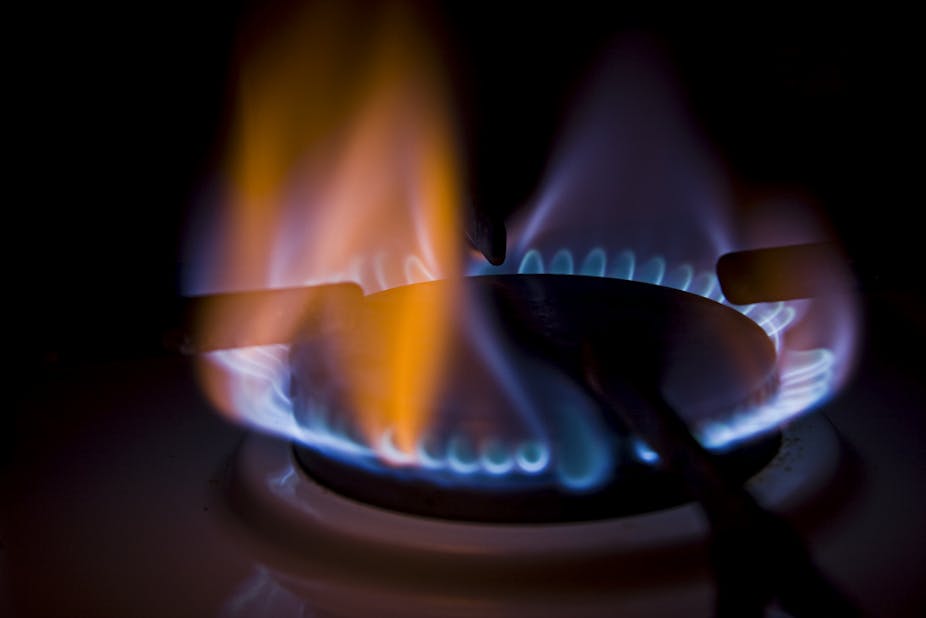Debate over the development of shale gas in the UK and its potential benefits has intensified in recent weeks as the prime minister visited a fracking site in Lincolnshire to make announcements over how more money from any gas produced should go back to local communities.
Media reports regularly claim that shale gas will lower domestic energy bills, linking shale gas to another political hot potato – energy’s role in what the Labour party has called the “biggest cost-of-living crisis in a generation”. Those who say bills will fall in the UK look to the US, where shale gas production has lowered gas prices and supported an economic recovery through cheap energy. We can have that here too, goes the argument.
Well, the British experience is unlikely to follow a similar path to that in the US but it’s still attractive for the economy to develop shale gas if it can be done commercially and with the right environmental and social safeguards. These are challenging hurdles to overcome, however.
The US shale gas “revolution” has been impressive in many ways. Back in June 2008, US gas prices peaked at more than US$13/Mbtu (natural gas is priced in millions of “British thermal units”, abbreviated as Mbtu). The discussion at the time was of the US needing to import liquefied natural gas (LNG) and billions of dollars were invested in constructing import terminals.
But rising prices had encouraged small, entrepreneurial drilling companies to develop cost effective ways to produce gas from shale rock. Domestic US shale gas production started to rise. But echoing the original development of oil in north-eastern US a century or so ago, a boom in gas supply within the US plus the financial crisis led to a bust in prices which fell as low as $2/Mbtu in April 2012.
In January 2014, the US price is back to more than $4/Mbtu. But prices in Europe and Asia are several times that level, and governments around the world are looking with envy at the benefits received by US consumers, politicians and energy intensive industries.
But North America is an island as far as gas is concerned – albeit a pretty large one. While the US had been preparing to import gas before the shale revolution, it does not have the network of international pipelines or export facilities that exist in Europe or other parts of the world.

International critics of the US argue that the lack of progress in approving gas export facilities or lifting the ban on exporting US-produced crude oil are deliberate tactics to keep energy prices low and maintain the economic advantage they have fostered. Canada meanwhile faces the dilemma of declining oil & gas exports to the US, and is considering its own investment in pipelines and export terminals to serve Asian countries.
As North Sea oil and gas developed, a series of sub-sea pipelines were built between the UK, Norway and the rest of Europe to enable the UK to sell gas internationally and enjoy the economic boom it provided.
This network served the UK well and, since 2004, the same pipelines have supplied gas into the UK as it has become a net importer. Regulators point out that the UK’s gas market is “the least concentrated and most liquid amongst the larger countries of the European Union”.
If the UK can develop shale gas commercially and sustainably on a significant scale, it will take a highly controversial change in policy for that gas not to become part of the wider European market, where prices are currently around $12/Mbtu.
This is recognised by UK politicians with a detailed understanding of the situation. Energy Secretary Ed Davey has been clear that lower prices are unlikely. The benefits of a sizable shale gas industry will be in terms of energy security, jobs in the UK and the economic contribution of producing gas here in the UK rather than importing it.
So the UK energy market after a shale gas boom would mirror the development of North Sea oil and gas. When North Sea energy came online, prices in the UK still reflected world markets but the country gained significant economic wealth from having a thriving oil and gas industry.
The government takes more than half the value of North Sea energy in taxes. How much it will take from shale is still being debated, but the chancellor can certainly look forward to significant tax revenues, even allowing for some to be passed back to local communities. But the consumer won’t find their bills are suddenly much cheaper.

